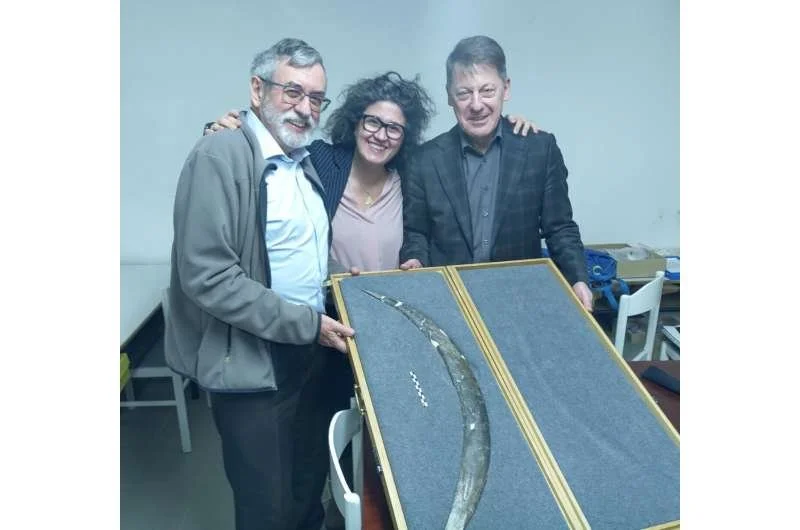The Pella Curse Tablet's Linguistic Clues: Unveiling the Linguistic Identity of Ancient Macedonians
The discovery of the Pella curse tablet in 1986 in the ancient capital of Macedon marked a significant milestone in understanding the linguistic landscape of ancient Macedonia. This lead scroll, inscribed with a curse or magic spell known as 'katadesmos' in Ancient Greek, dates back to the first half of the 4th century BC (circa 375–350 BC). Published in the Hellenic Dialectology Journal in 1993, the tablet provides not just an intriguing glimpse into ancient magic and personal relationships, but also valuable linguistic insights.
The Contents of the Spell
The spell on the tablet, which was most likely written by a woman named Dagina, tells a story of unrequited love and mystical appeal. She seeks to bind her former lover, Dionysophon, ensuring he marries her instead of another woman, Thetima. The spell invokes "Makron and the demons" to ensure that Dionysophon would not marry another unless Dagina herself released him from this enchantment. This personal and desperate appeal to the supernatural offers a rare, intimate view into the lives and beliefs of ordinary people in ancient Macedon.
According to James L. O’Neil from the University of Sydney, the translation of the ancient text is:
''I forbid by writing the ceremony and the marriage of Dionysophon and Thetima, and of all other women, and widows and virgins, but especially Thetima, and I assign them to Makron and the daimones. And whenever I shall unroll and read this again, after digging it up, then Dionysophon may marry, but not before. May he not take any wife but me, and may I and no other woman grow old with Dionysophon. I am your suppliant; pity me. dear daimones, for I am weak and bereft of all friends. But protect me so this does not happen and evil Thetima will perish evilly, [undecipherable] mine, but may I be fortunate and blessed, [undecipherable].''
Present location: Archaeological Museum of Pella
The Dialect of the Tablet
The Pella curse tablet is written in a distinct Doric Greek idiom. Its significance stems from the unique features it presents, distinguishing it from other Doric subdialects like those of Epirote and Locrian. The dialect evident in this tablet and other Doric inscriptions found in Macedonia suggests that the region had its own indigenous Doric Greek dialect. This challenges previous theories that Doric Greek was imported into Macedon, positing instead that it was a native dialect of the region.
The dialect of Northwest Greek used on the tablet is typical of the lower-class people in Pella. This is inferred from the writer's vocabulary and belief in magic. However, it's essential to note that the use of magic was not confined to any specific social class in ancient Greece. Wealthier individuals also used similar practices for various purposes, including love, revenge, or competitive advantages.
Interpretative Challenges
The tablet, however, is not without its linguistic mysteries. Words like "DAGINA" are unattested elsewhere, leading to debates among scholars about their exact meanings or whether they represent misspellings. These linguistic peculiarities highlight the complexities of interpreting ancient texts and understanding the nuances of ancient dialects.
Historical and Linguistic Significance
The Pella curse tablet's primary importance lies in its contribution to the debate about the linguistic nature of the ancient Macedonian language. Scholars like Olivier Masson and James L. O'Neil have argued that the tablet supports the view that Macedonian was a Northwest Greek dialect, specifically Doric. This assertion aligns with the Doric forms observed in the tablet and other Macedonian inscriptions. Moreover, the shift from the native Macedonian dialect to Koine in later inscriptions reflects the evolving linguistic dynamics of the region.
The Pella curse tablet is more than a relic of ancient magic; it is a crucial artifact for understanding the linguistic identity of ancient Macedon. Through its distinctive Doric Greek dialect, it offers compelling evidence that Macedonia was a part of the Northwestern Greek dialectal group. As we delve into these ancient texts, we unravel not just languages but the very essence of the people who spoke them—their beliefs, their social structures, and their daily struggles. The tablet remains a testament to the rich and complex tapestry of ancient Hellenic culture and its enduring legacy in shaping our understanding of the past.








